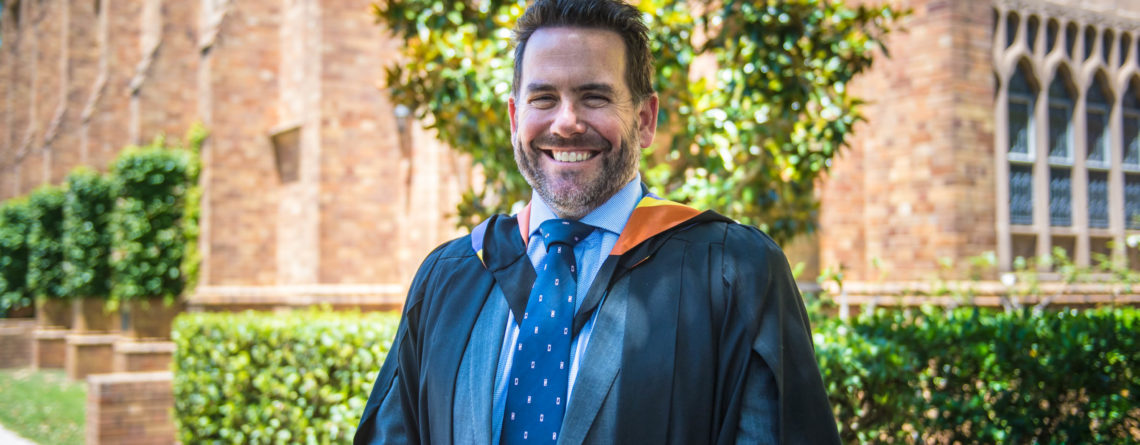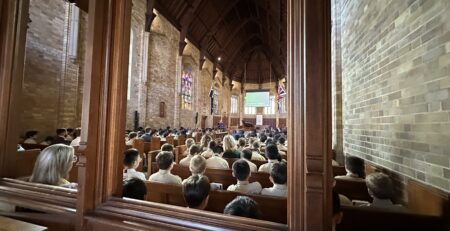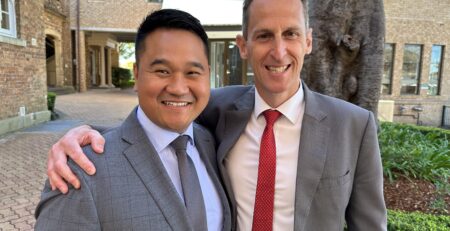From the Head Master
One thing that is abundantly clear in our public discourse is that we want clarity.
The daily press briefings by the Premier and others frequently emphasise their desire to provide clarity. The queries put to them by journalists and commentators in various forms decry the lack of clarity and call for more clarity. We all want clarity.
In listening closely, I have begun to wonder whether the calls for clarity actually mean ‘I want to know exactly what this means for my particular question or problem.’ While the pandemic and its consequences are a huge all-encompassing issue that seems to affect everything in general, each of us has specific circumstances and challenges for which we want clarity.
The trouble is that the challenges presented by the pandemic are complex in the extreme. Clarity is very hard to find in a complex challenge. As the American journalist and writer H.L. Mencken said, ‘For every complex problem there is an answer that is clear, simple, and wrong.’ The call for clarity is very simple, but the provision of clarity is not.
I was reminded of this, albeit applied in another field, by a speech by the Productivity Commissioner that was reported recently. Michael Brennan mentioned the evolutionary approach to economics, which notes the ‘realistic view that firms face uncertainty – both about the state of things and the future – and do their best to navigate their way through the fog.’ I thought that this was a very pithy summary of the reality of leading an enterprise and it certainly rang true to my experience.
Ron Heifetz, from the Harvard Kennedy School, observes that we want comfort, stability and solutions from our leaders. While acknowledging the validity of these desires, particularly when we are facing destabilising challenges, it may be that comfort, stability and solutions are actually not available to the degree that we want them. In seeking to provide the comfort that we want, our leaders run the risk of over-promising and under-delivering. They may even do us the disservice of teaching us to expect that simple clear answers are always available.
I encountered one other aphorism that connected with my musings on this matter this week; this one came to me through an online fitness instructor who wanted me to become ‘comfortable with the discomfort’. At the time, the discomfort was very real and the exhortation was very annoying. However, it has validity. The discomfort may actually have some benefits for us.
I spoke to the Middle and Senior School boys about this during the week, drawing on the insights of the philosopher Nicholas Taleb, lawyer Greg Lukianoff, and social psychologist Jonathan Haidt. Your son can provide you with the link if you would like to hear my brief reflection (and see me fail to shatter a tea cup!) Their observation is that resilience and robustness grow out of stressors and challenges. In our context, living with the uncertainty about the future, the frustration of expectations, and all the other ways that the pandemic hinders our ‘normality’, may actually have benefits for us.
This is not to diminish or dismiss the reality of mental health challenges that many of us may face in these circumstances. But it does make the point that it is possible to catastrophise the situation and frame its every impact as damaging. We may do well to shift our focus to becoming comfortable with the discomfort, because the fog of uncertainty is going to continue to be part of our experience.
Moving from the conceptual to the practical, Mr Barr’s article in this Bulletin provides some answers to the questions that were asked in the webinar for Middle and Senior School students and parents last Tuesday, as well as links to the recordings of the webinar. This article and link may be of benefit to families who have missed some of our communications about the recent changes to the academic year for Years 7-12.
Detur gloria soli Deo.
Tim Bowden | Head Master
















